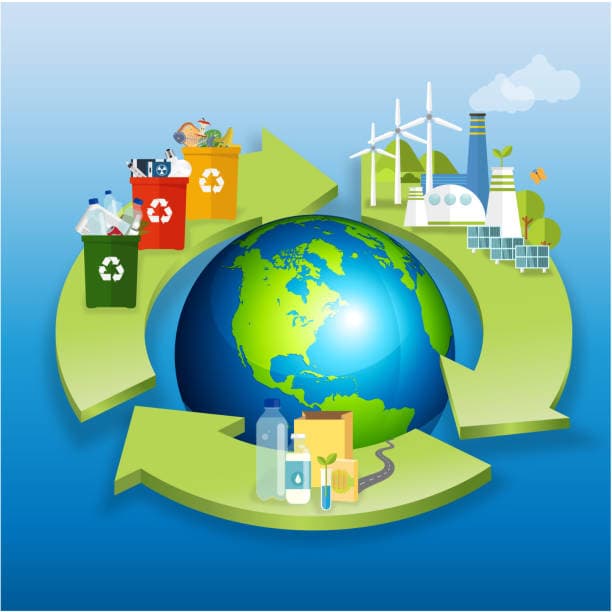Revolutionizing London: Innovative Approaches to a Sustainable Circular Economy



The circular economy concept is a sustainable alternative to the traditional linear economy, focusing on reducing waste, minimizing resource consumption, and extending product life cycles. London, as a global city, has the potential to pioneer innovative circular economy approaches that can transform its waste management, energy, and resource sectors. Here are some novel circular economy strategies that can be employed in London to promote sustainability and economic growth.
Urban farming and vertical agriculture: As the population continues to grow, cities like London face the challenge of providing sufficient food for their inhabitants. Urban farming and vertical agriculture can optimize land use and reduce food waste by growing food in controlled environments within the city. This approach shortens the supply chain, reduces transportation emissions, and fosters local economic growth.
Sharing economy platforms: The sharing economy enables individuals and businesses to access goods and services on a need basis, reducing waste and overconsumption. London can encourage the development of sharing platforms for transportation, accommodation, and tools, fostering a culture of shared ownership and resource optimization.
Modular and adaptable buildings: Constructing modular and adaptable buildings that can be easily dismantled, refurbished, and reused can significantly reduce waste generated by the construction industry. London can promote modular building designs, employing materials and components that are easy to recycle or upcycle, thereby extending the life cycle of built environments.
Material innovation and bio-based materials: London can invest in the research and development of innovative, bio-based materials that are recyclable, biodegradable, or compostable. This would reduce the city's dependence on non-renewable resources and contribute to a circular materials economy.
Product-as-a-service models: Businesses can transition from selling products to offering services, enabling consumers to access products without owning them. This model encourages businesses to design products that are durable, repairable, and upgradable, reducing waste generation and promoting resource efficiency.
Digital technology and data-driven solutions: The use of digital technology and data analytics can help London optimize resource consumption, identify waste streams, and track material flows. This information can be used to develop targeted circular economy strategies and monitor their effectiveness.
Collaborative initiatives and cross-sector partnerships: London can promote collaboration between the public and private sectors, research institutions, and local communities to create a holistic approach to the circular economy. Cross-sector partnerships can lead to innovative solutions and drive systemic change.
In summary, London can embrace a variety of novel circular economy approaches to foster sustainability, reduce waste, and promote economic growth. By adopting urban farming, sharing economy platforms, modular building designs, material innovation, product-as-a-service models, digital technology, and collaborative initiatives, London can pave the way for a resource-efficient and environmentally friendly future.